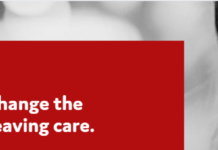Nowadays, it’s common to use online loans when facing a small, unexpected expense you can’t afford on your own. Thirty-eight percent of all personal loans originated in the U.S. were issued by FinTech services according to TransUnion.
Heading online for a quick installment loan is incredibly convenient, especially while social distancing measures are still in effect. But as the number of high-profile data breaches keep on rising, it does carry an extra risk for your finances. You’ll have to exchange precious data over the web to receive your funds, and if your lender mishandles it, they may expose you to identity theft and fraud.
But that doesn’t mean you can’t borrow money safely online in an unexpected emergency. Online loans are a secure financing option if you know how to protect yourself. Check out these tips to navigate the online borrowing experience with your digital safety in mind.
Look for a License
It doesn’t matter what you’re planning to borrow. Whether it’s a mortgage, installment loan, or cash advance, you should only ever borrow from a lender with a license. There are no exceptions.
A license means they meet your state’s legal requirements of financial institutions. The government will only award a license to lenders that prove they follow the lending laws. Most of the laws are designed to protect the consumer from unfair lending practices but some safeguard your privacy, too.
Without this license, there’s no guarantee your lender will play by the rules. Rather than taking their word for it, partner with a financial institution that can produce their license.
Study the Privacy Policy
Scroll to the bottom of a financial institution’s homepage until you reach the bottom. There, you’ll see a link to the security or privacy policy. Click on it to read how a lender intends to collect, use, share, and store your personal information. If this information is missing, it’s time to look for another lender.
Check for Associations
You can tell a lot about a person by the company they keep. The same can be said about financial institutions. The kinds of organizations they partner with will reflect their priorities.
The Online Lenders Association is a third-party organization for financial institutions offering online loans. It promotes professionalism within the industry and upholds ethical standards for its members. Take a look at their best practices to see what that means.
In many ways, these best practices reflect the same concerns protected by lending laws. If your lender is an OLA member, they’re likely serious about following these laws.
Recognize Red Flags
An online lender has a legitimate need to look at your personal information. This data helps them determine your creditworthiness, or the chances you’ll pay them back if they grant you funds.
How they go about asking you for this information is critical. A legitimate online lender will never use threatening or insulting language. They have extensive customer service departments dedicated to curating a respectful and professional experience at every step of the process.
Inflammatory language may be a visible red flag, but others are craftier.
- They ask for an advance fee before they release your funds.
- They request you reply directly to an email with your personal information.
- They suggest you wire a money transfer or pay them in gift cards or bitcoin.
- Their website lacks firewalls, encryption, and security licenses.
Monitor Your Accounts
Your finances aren’t something you can set and forget. They’re something you should regularly check-in on to ensure everything is running smoothly. Reviewing your bank account and installment loan statements gives you a chance to spot any suspicious activity. Do the same with your credit report.
Avoid Free Wi-Fi
If you’re on a limited data plan, the free Wi-Fi offered by most cafés and stores may be a boon to your budget. You can join it to check the transit map for your route home or listen to a podcast while you shop.
But don’t stop to work on your finances while you sip on a latte. The free Wi-Fi offered by stores is by no means secure. As an unsecured network, anyone can join, and if they’re crafty, they can spy on your browsing—that includes any logins or financial accounts numbers you need to provide to apply for or repay an installment loan.
Wait until you’re back at home on a network you trust to fill out an application or check on your loan.
Variate Strong Passwords
A strong password—something that contains a mixture of letters, numbers, and special characters that aren’t easy-to-guess names or dates—may stand up to brute force attacks. But a strong password’s Achilles heel is when you reuse it for every account.
Overexposure weakens the security of even the most robust passwords. All it takes is for one data breach to reveal the password linked to your email. The fraudster will have the key to any other accounts you made using that email.
Bottom Line: Share Your Data Wisely
As data breaches become more common, ignoring your online security is not an option. Think about the way you share your personal information and remember these tips as you borrow money online. They can help you spot a lender that’s doing its best to safeguard your data.
Help keep news FREE for our readers
Supporting your local community newspaper/online news outlet is crucial now more than ever. If you believe in independent journalism, then consider making a valuable contribution by making a one-time or monthly donation. We operate in rural areas where providing unbiased news can be challenging. Read More About Supporting The West Wales Chronicle

























